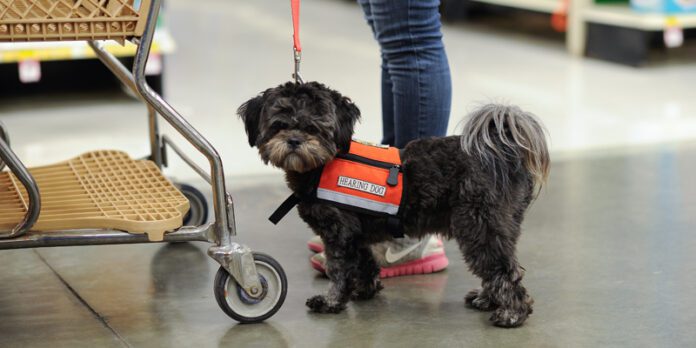
A peek into the Sam Simon Foundation in Malibu
For a person with profound hearing loss, missing an emergency alert or smoke alarm can be the difference between life and death. That’s where the Sam Simon Foundation, located in Malibu, comes in. The foundation not only helps humans, but its mission statement, “Saving the lives of dogs, to enrich the lives of people,” indicates it uses shelter dogs to do so. Training rescue dogs into what are called “hearing dogs” is a mission the late animal rights activist Sam Simon started 20 years ago.
Simon, a successful animator and producer best known for “The Simpsons,” made a fortune and endowed the Sam Simon Foundation Assistance Dogs before he died in 2015. The foundation does no fundraising. It started with just with one instructor at a property Simon purchased in Ramirez Canyon. It’s placed hundreds of hearing dogs since 2005 and in 2010 expanded by training service dogs for combat veterans with PTSD.
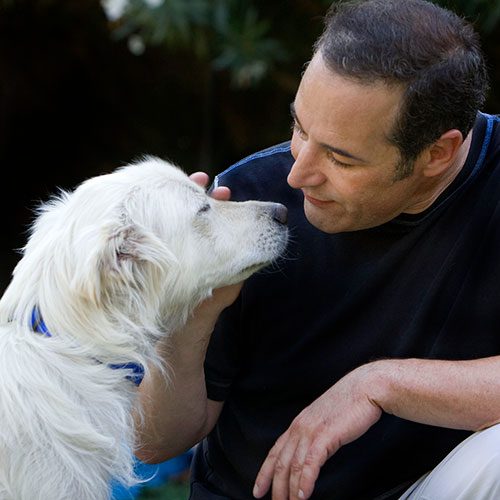
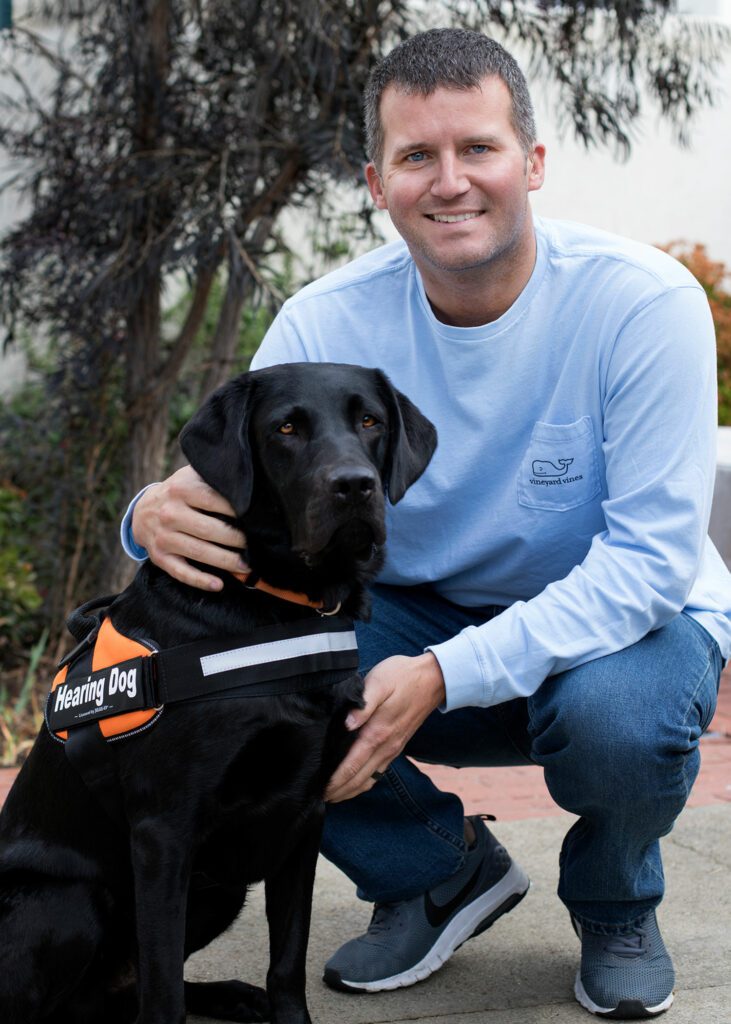
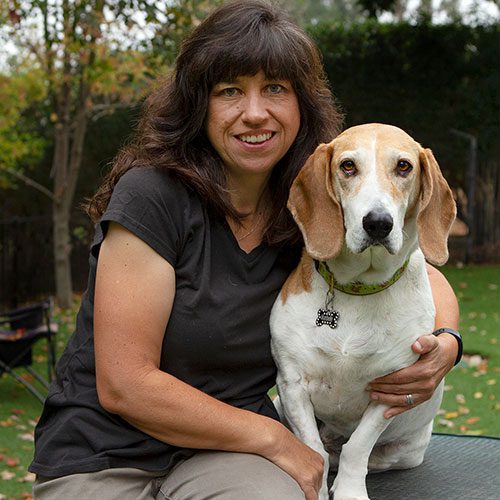
Prior to damage from the Woolsey Fire the foundation had a license for 23 dogs who are not kenneled but live in a home because eventually that is their goal, to live in a home and become a working dog. Now it can only accommodate 15 animals.
Typically, smaller breeds are chosen to become hearing dogs.
“Our focus is on rescuing dogs that are intended to complete training as a hearing dog,” Program Director and Instructor Barb Velasquez explained. “We’re looking for young dogs that are energetic, outgoing, friendly, and a dog that appears comfortable in a new environment; confident dogs. They’re the dogs that will likely do well in our program because hearing dogs can go anywhere with the person they’ve been matched with.
“They go to restaurants, workplaces, grocery stores. They are trained in socialization and the specialized work they do. We find out in training whether they have interest in the work. The hearing dogs work for toys and treats. That’s really their paycheck when they alert us to a sound.”
One in four dogs generally completes training. The others are adopted out as companion pets.
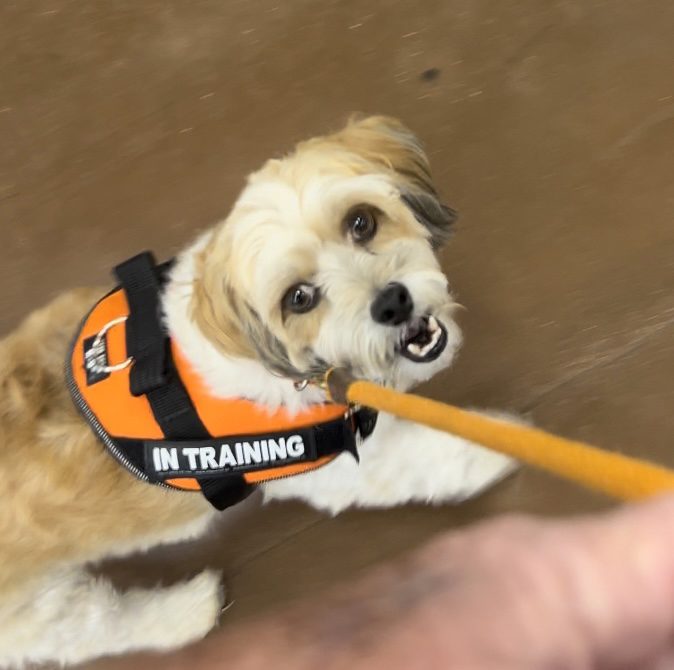

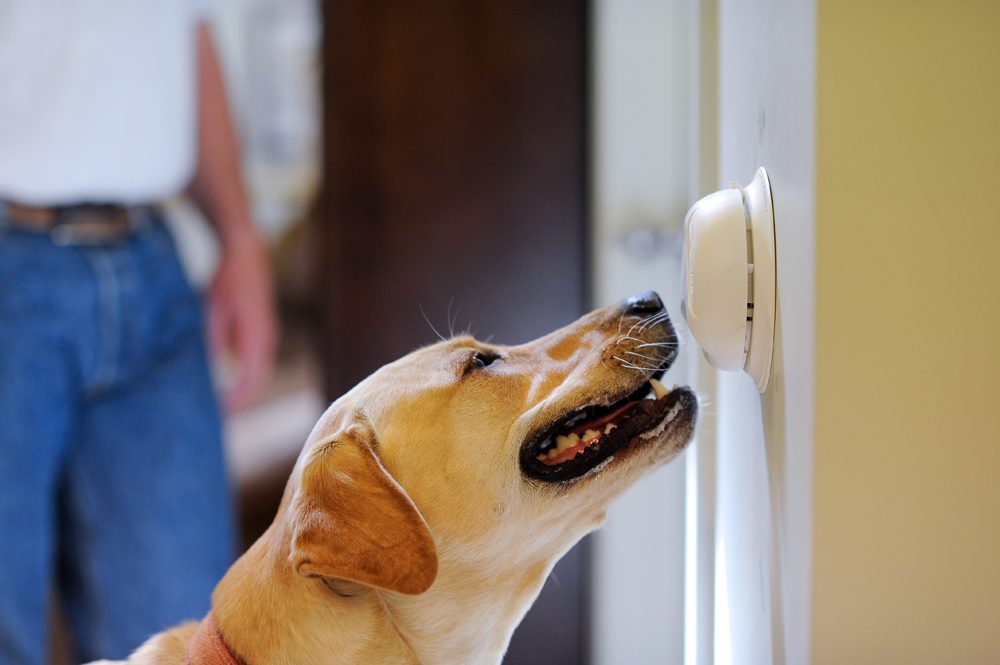
After training, hearing dogs help keep the hearing-impaired safe by warning of sounds. With a nudge of their noses, the dogs alert their owners to doorbells, telephones, smoke alarms, and other noises, then run to identify the source.
“For Sam Simon that was what was always important to him, giving the dogs an opportunity to see if this is the career for them. He felt that every dog that came in to this program would enrich someone’s life,” Velasquez said. “We’re pulling dogs from shelters and enriching their lives whether they become hearing dogs or we adopt them out as a companion pet. Sam also understood that with using rescue dogs not all would complete the specialized training.” That means some dogs are lifers and remain at the foundation.
Clients apply for dogs and then instructors make an in-person home assessment to try and match them with dogs that will fit their specific needs. Once a match is made the dogs are hand delivered so new owner and animal can be trained to work as a team. As an accredited program through Assistance Dogs International, follow-up visits are then made to make sure standards are followed. Due to the many visits involved, the service dogs are rehomed in California or nearby states where trainers can drive with the animals in just one day’s time.
“Clients do not pay anything for the service, only the pet’s basic needs such as food and veterinary care,” Velasquez noted. “Dogs, equipment and support is all funded through the foundation.
“If there’s someone who has a profound hearing loss and loves dogs and wants to be considered for a hearing dog we’d love to welcome your application.”
However, according to Velasquez, something to keep in mind is that hearing dogs can live with other pets, but not with other dogs. Living with other dogs can make for a difficult relationship because hearing dogs are working and being rewarded with toys and treats.
Companion dogs are also available for adoption.
According to the website, “Not all of our outstanding dogs can meet the demands of becoming a Certified Assistance Dog, thus the need for a ‘Career Change.’ They are, however, still winners, and make wonderful pets. Many are already housebroken and some know basic obedience commands. In short, these ‘near misses’ make wonderful companions. We can help match you with a lifelong canine companion.”
Applications for hearing and service dogs are available at SamSimonFoundation.com.
